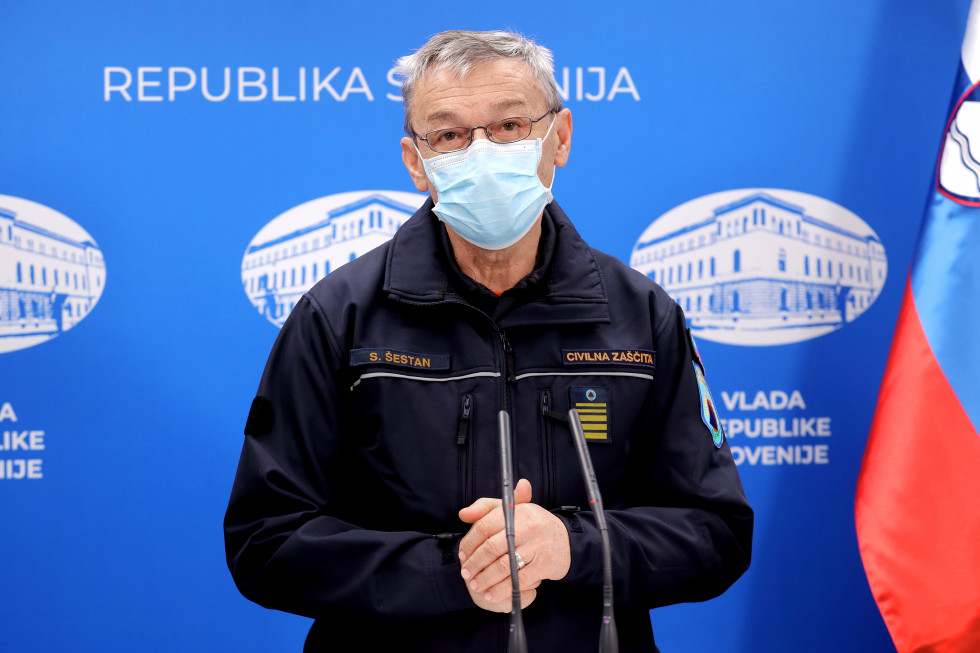By: P.T., Source: gov.si
The press conference today on the current COVID-19 situation was attended by the head of the regional civil protection service in Koper for the DSO area, Gabrijela Valenčič, the head of the RS civil protection service, Srečko Šestan, and the government spokesperson, ambassador, Jelko Kacin.
Mr Kacin initially presented the epidemiological data. 5596 tests were performed yesterday, with 1302 confirmed positive cases. The share of positive tests amounted to 23.27 percent, which is somewhat less than the previous days; however, the data shows that the virus remains widespread in our society, the epidemic is not easing, and the number of infections is being reduced too slowly. Kacin believes that the virus is spread throughout the country, with several main centres.
The virus is making its way into retirement homes, which is the reason behind the high number of ill and severely ill who require hospital treatment. This is unfortunately the group of the most vulnerable persons, hence the high mortality rate, said Kacin. He pointed out that each and every one of us needs to act as if they are infected. The reason behind the virus making its way into retirement homes, hospitals, and even work organisations, is mostly due to the spread of the virus by asymptomatic patients. Protection of the nose and mouth, regular disinfection of the hands, and maintaining social distances should remain common practice, because this is currently the only way to prevent the infections that we have.
The representatives of the civil protection service, Srečko Šestan and Gabrijela Valenčič, continued with the presentation of a plan to include volunteers and representatives of the civil protection service into the work process at retirement homes. Retirement homes are facing difficulties in three areas; the lack of medical and other professional staff, the lack of protection equipment, and insufficient conditions for establishing the so-called red zones.

